Ed Miliband confirms crackdown on new North Sea oil and gas exploration
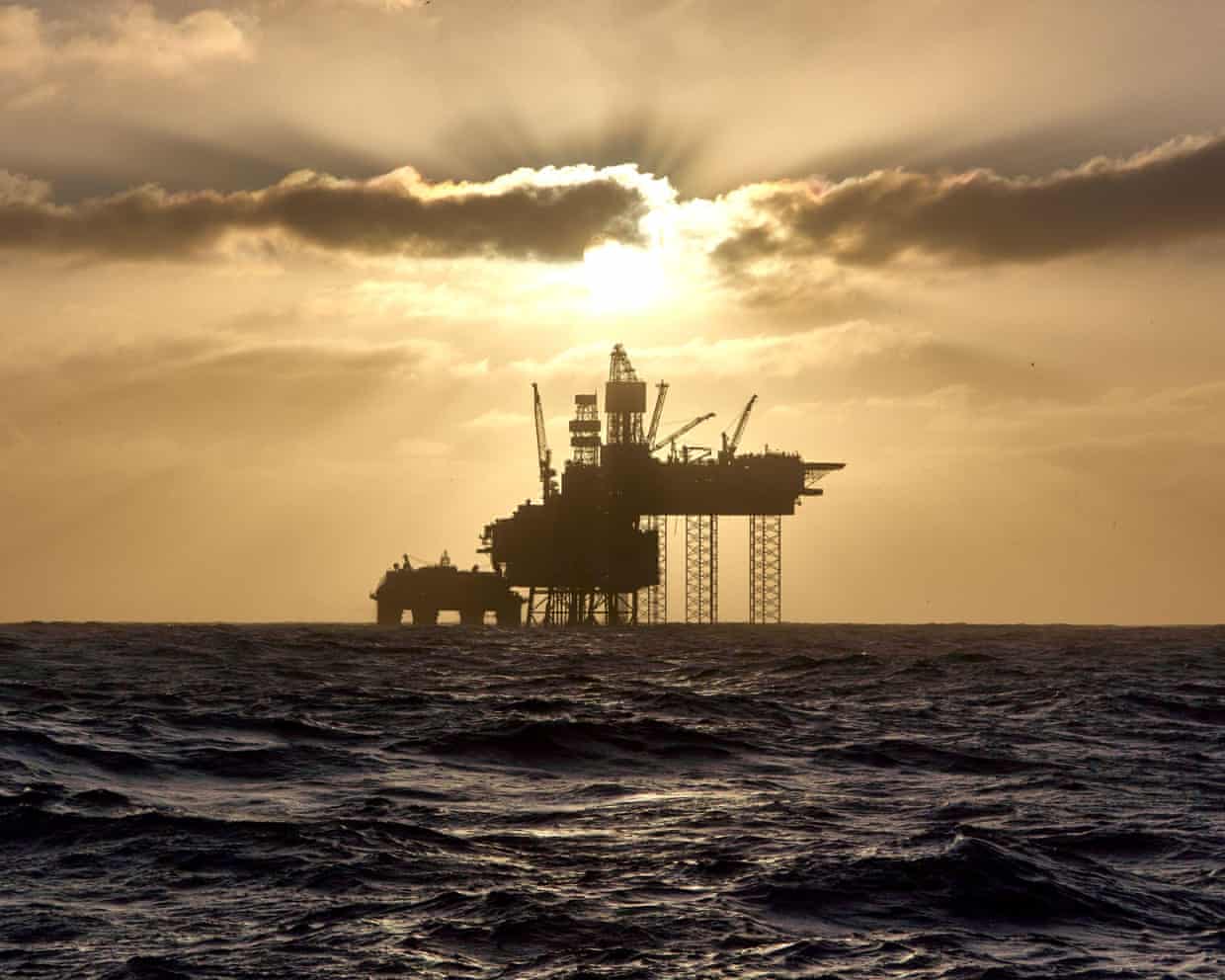
The government has ruled out new North Sea oil and gas exploration or lower taxes for fossil fuel companies as it struggles to protect workers from the industry’s collapse.In a strategy paper, Ed Miliband confirmed the crackdown on new North Sea exploration – although the energy secretary will still allow new offshore fossil fuel projects to move ahead as long as they are linked to existing fields.The strategy was released alongside Rachel Reeves’ budget statement, which ended months of speculation over the future of the North Sea industry by confirming the government’s intention to ban new oil and gas licences to explore new fields, and keep tax rates in place.The Labour party swept to power with a promise to end new exploration drilling, alongside a pledge to work with oil and gas companies to manage the North Sea’s remaining lifespan.The government hopes that by allowing “tie-back” projects that are linked to existing schemes it can strike a balance between protecting thousands of North Sea jobs and meeting the UK’s climate commitments.
Miliband said: “The North Sea’s workers and communities have helped power our country and our world for decades.This is our plan to ensure they continue to do so for many decades to come.”Greenpeace said that holding firm on the oil and gas windfall tax, despite fierce industry lobbying, would support the transition to clean energy.Greenpeace UK’s co-executive director, Areeba Hamid, said: “Oil and gas production has driven both the climate and energy price crises, leaving us all paying through the nose while fossil fuel companies have pocketed billions.But the winds are changing.
The future of Britain’s energy is and needs to be clean, stable, homegrown renewables – not expensive, volatile, climate-wrecking fossil fuels,“However, the current plan – and the cash – to support North Sea workers doesn’t go far enough,It’s vital they are at the heart of Britain’s transition to a clean-energy superpower, not left behind by it – but a £20m jobs package doesn’t cut the mustard,A fair transition will create thousands of new jobs, strengthen communities, and prove that climate leadership and economic security can go hand in hand,”The industry association Offshore Energies UK (OEUK) warned that the windfall tax would “cripple” investment and called for an urgent meeting with the chancellor to “explore every option to reverse this policy and prevent further economic and industrial damage”.
To secure an energy transition certificate and move ahead with a tie-back project, oil and gas firms should prove that the extra fuel production is necessary, and that projects can move ahead without investment in any new fossil fuel infrastructure.This should mean only a small fraction of the North Sea’s remaining reserves will be developed in even the most optimistic scenarios, according to analysis by Uplift, a group that campaigns to end North Sea drilling.Tessa Khan, the executive director of Uplift, said: “This government is right to end the fiction of endless drilling.The North Sea is an ageing basin, with most of the gas already burned, and new licensing will do nothing to stem the decline in jobs.“We now need this government to be bolder – to make sure the jobs and wealth generated from the shift to clean energy reach UK workers and communities, and to ensure we maintain a livable climate.
That means a proper plan for workers and an end to all new fields, including the huge Rosebank oilfield.”The government is expected to decide the Rosebank oilfield’s fate early next year.The controversial project secured an exploration licence under the previous government, meaning Miliband could give the final green light to the project without breaching his party’s manifesto.Sign up to Business TodayGet set for the working day – we'll point you to all the business news and analysis you need every morningafter newsletter promotionIndustry sources claim that the North Sea industry’s decline will accelerate with a windfall tax – even if Rosebank proceeds and North Sea tie-back projects are approved.Oil and gas producers have faced taxes totalling 78% on their profits since the energy crisis caused a surge in market prices.
However, the windfall tax has continued to take a toll on production as oil prices have fallen back to pre-crisis levels.North Sea spending has collapsed from more than $35bn (£26bn) a year in 2015 to about $15bn in 2023, according to government data, causing the industry’s total workforce – including direct and indirect jobs – to more than halve, from about 450,000 to 200,000 over the same period.Industry analysts at Stifel, an investment bank, predicted that under the government’s current fiscal regime jobs in the sector will halve again before the end of the decade.The blow to jobs and investment will also take a toll on Treasury revenues, according to official data.Tax receipts from the industry are expected to fall by more than 41% from last year to £2.
7bn in this financial year, according to the Office for Budget Responsibility,This is £2,5bn lower than its forecasts in March,By the end of the decade, receipts are forecast to plummet to £300m under the government’s windfall tax,David Whitehouse, the chief executive of OEUK, said: “Today, the government turned down £50bn of investment for the UK and the chance to protect the jobs and industries that keep this country running.
Instead, they’ve chosen a path that will see 1,000 jobs continue to be lost every month, more energy imports and a contagion across supply chains and our industrial heartlands,”
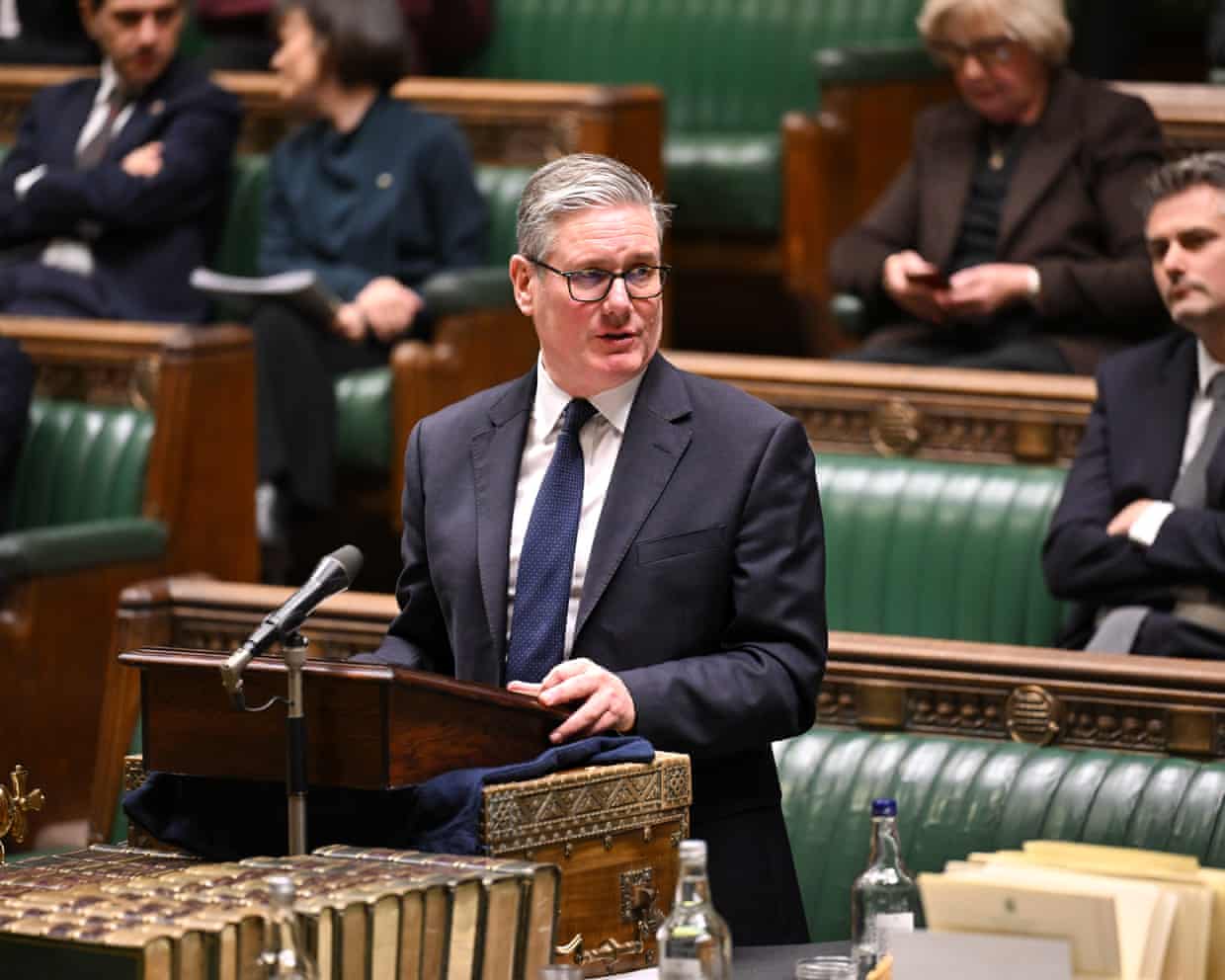
‘Where’s Nige?’ Reform leader skips Commons statement on Ukraine, leaving Tice to face pile-on | John Crace
Just occasionally the House of Commons is more remarkable for who isn’t in the chamber than for who is. So it was striking that Nigel Farage was absent for Keir Starmer’s statement on the G20 summit and the Ukraine peace process.You might have thought the man who has spent the last six months telling anyone who will listen that he will be the next prime minister might take some interest in geopolitics and Britain’s global standing. Apparently not. Only Richard Tice from Reform stayed for the session

‘I didn’t start it’: Starmer apologises for ‘six seven’ uproar during school visit
It has become the bane of many parents’ and teachers’ existence: children bleating out “six seven” for apparently no reason.So parents of pupils at Welland Academy in Peterborough will be unimpressed to discover that none other than the prime minister was encouraging their youngsters in the viral phenomenon.In a clip posted to Keir Starmer’s Instagram account, the prime minister can be seen reading with a young girl who points out she is on “page six-seven”, prompting him to start the dance move – a juggling like motion – that accompanies the infuriating craze.Before long, other members of the class are joining in and laughing hysterically.“That was a bit wild,” Starmer says as he exits the classroom, before he is swiftly reprimanded by the school’s headteacher, Jo Anderson

How Lord Dannatt used his peerage to open doors for business interests
The flowers and hamper that arrived at the Tower of London had been sent by a small energy company based in Sierra Leone. They were a gift to Richard Dannatt, the former head of the British army, who a few months earlier had introduced the company’s executives to the minister for Africa. It was a move they hoped would smooth the way for the fledgling company’s grand plans to build a £500m hydroelectric dam.With support from the UK government, the company had a better chance of getting the dam built. The dam, they said, would bring much-needed cheap electricity to many people in Sierra Leone
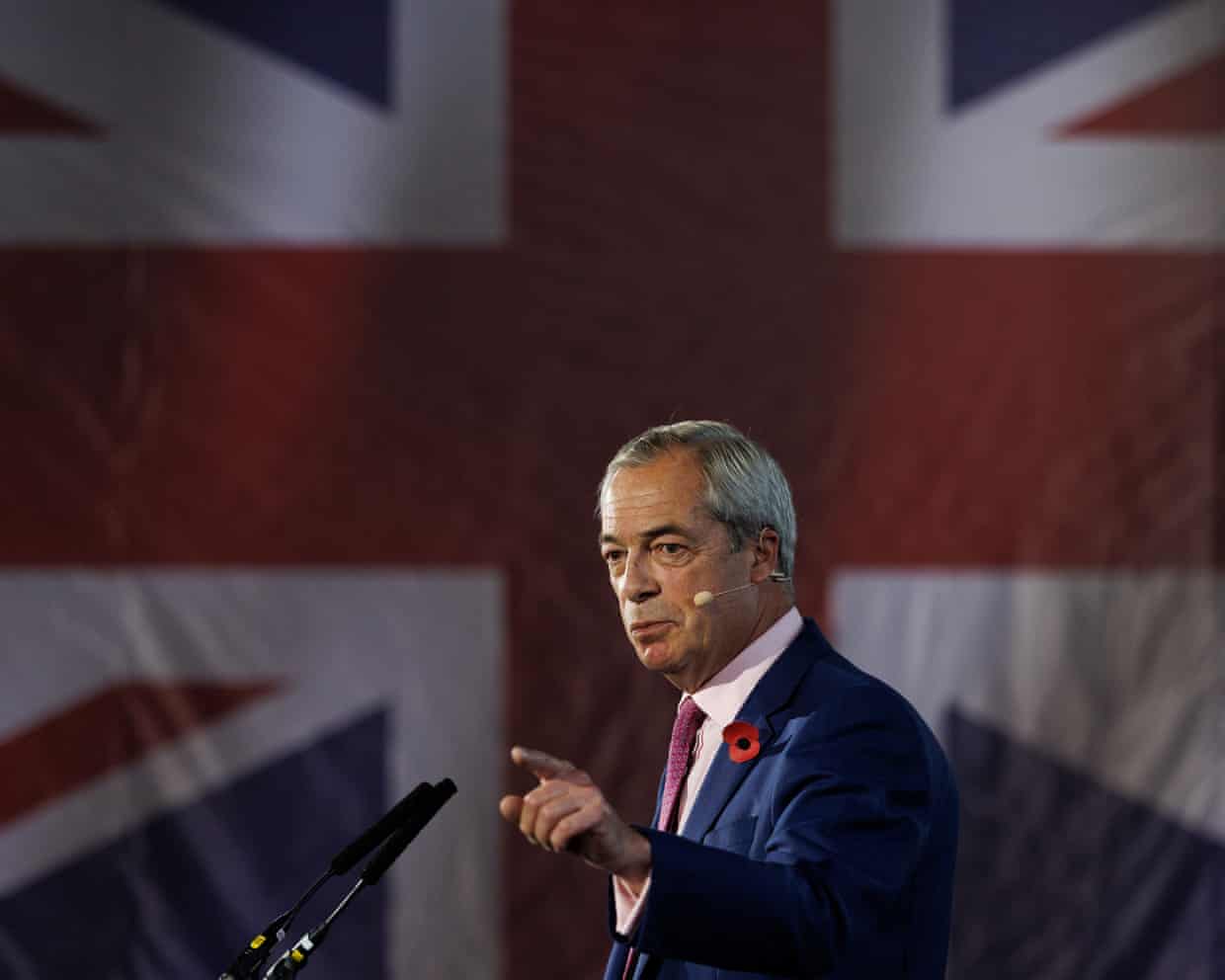
Reform’s ‘Trumpian’ legal threats hint at more aggressive approach to media
“It was Trumpian,” said Mark Mansfield, editor and CEO of Nation.Cymru, a small English-language Welsh news service. “It has perhaps given us a flavour of how a Reform UK government would behave towards the media.”Mansfield is referring to what he described as an attempt by a figure at Nigel Farage’s Reform UK party to “bully” his publication, but he believes a wider lesson might be learned.On 12 November, Nation

Nigel Farage’s shifting answers on school-days racism claims – a timeline
Nigel Farage’s response to allegations of teenage racism during his time at Dulwich college have ranged from vehement at times and rather more nuanced at others.Here is what he has said.After Channel 4 reporter Michael Crick revealed a June 1981 letter written by a teacher about Farage during his time in Dulwich referring to him as “racist” and “fascist” or “neo-fascist”, Crick tracked down Farage.Farage said: “Of course I said some ridiculous things that upset them.” Crick asked him if these were “racist things”
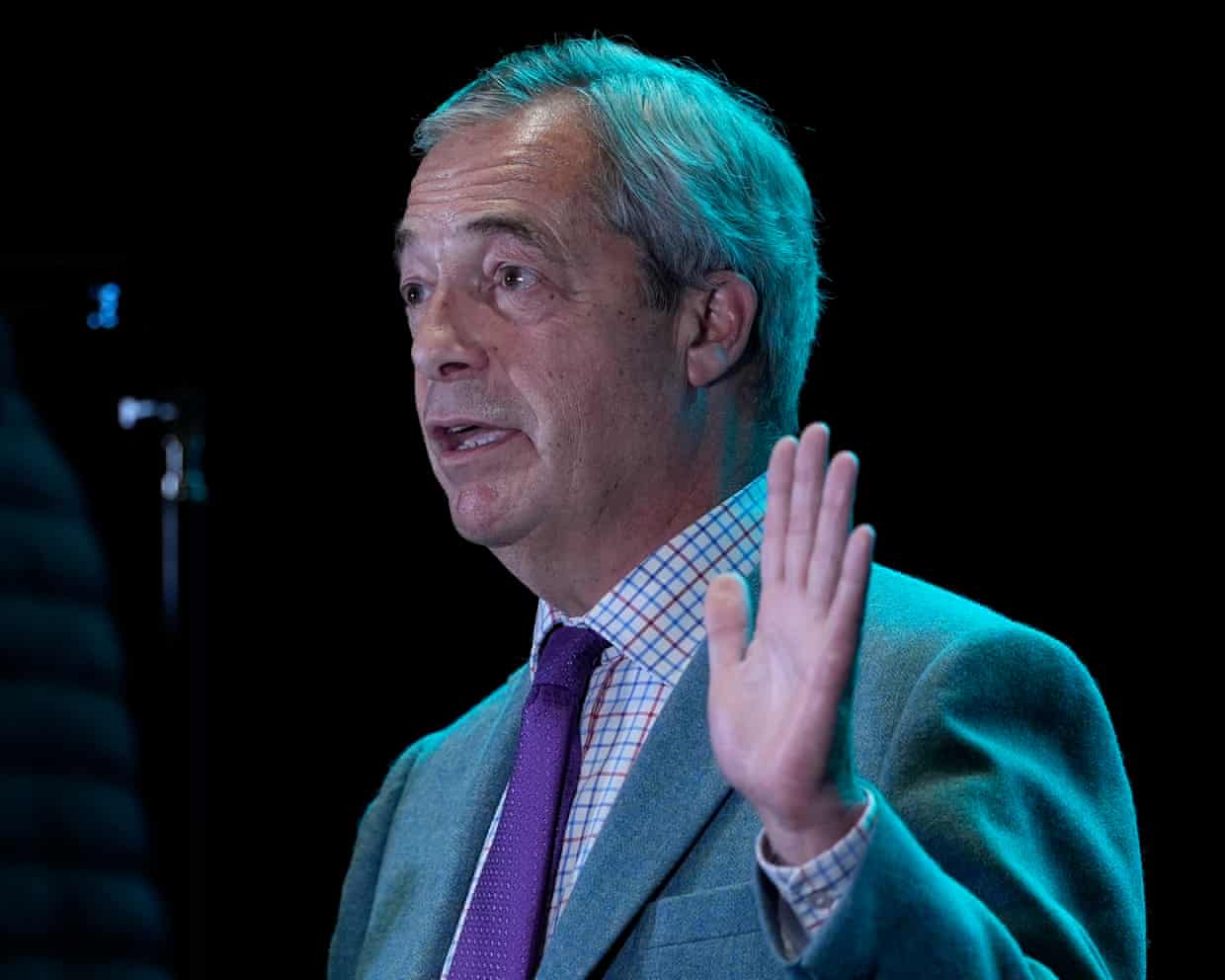
Nigel Farage responds to racism claims saying he never ‘tried to hurt anybody’
Nigel Farage has broken his silence nearly a week after he was accused by about 20 people of racism and antisemitism as a teenager, by saying he “never directly, really tried to go and hurt anybody”.His remarks came after the publication of a detailed investigation by the Guardian in which many of his school contemporaries claimed to be victims of, or witnesses to, repeated incidents of deeply offensive behaviour.The Reform party leader’s aides emphatically denied the allegations, saying that any “suggestion that Mr Farage ever engaged in, condoned, or led racist or antisemitic behaviour is categorically denied”.In a broadcast interview on Monday, Farage appeared to give a more nuanced response when he was asked if he had racially abused fellow pupils at school.He replied: “No, this is 49 years ago by the way, 49 years ago

Roman amphitheatre older than Colosseum gets accessible facelift for Winter Paralympics
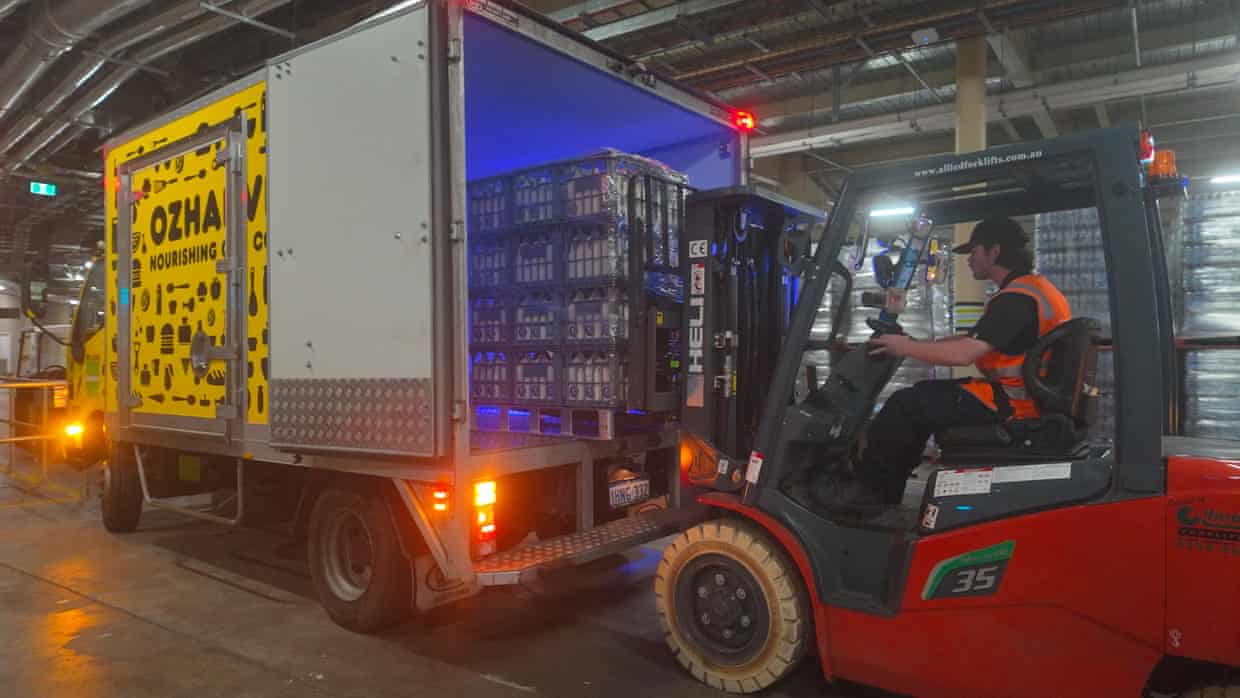
Short first Ashes Test results in record donation of surplus food across Western Australia

England can’t change now: Bazball approach must be seen through to its conclusion | Taha Hashim

England have no plans to reward Borthwick with new deal despite winning run

Mitchell Starc has got England’s number as Ben Stokes faces a dirty dozen in Brisbane | James Wallace

England warned ‘wickets fall in clumps’ with pink ball under lights at the Gabba